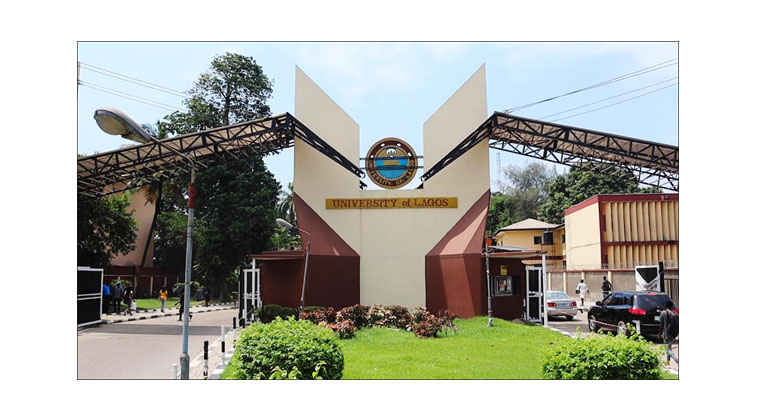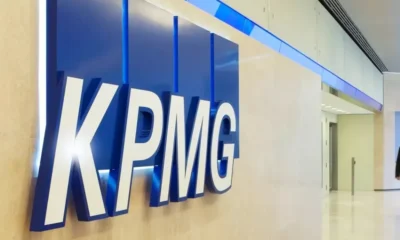CAMPUS REPORTS
Rising Costs Plague UNILAG: Students, Traders Speak Out

Disappointment, anger, and horror met the school administration, UNILAG when it announced an increase in school fees last year. Students of the University of Lagos who once paid ₦25,000 in earlier sessions were now expected to pay about ₦160,000 plus a separate utility bill of ₦20,000.
“After several weeks of protests by student groups in October last year (2023), the school administration announced a ₦20,000 cut from the increase and more initiatives to ease the burden of the increase, such as splitting payment between two semesters,” explained one student. “But since then, things have only gone downhill. The cost of living is terrible.”
Pascal, an undergraduate student of mathematics, lamented, “The cost of living has affected me in a way that I no longer get to buy the things I want for myself; it even made me eat less.”
Also, Christopher, a student of surveying and geoinformatics engineering, shared his struggles, saying, “I could have gone to school for practicals today, but I don’t have money for transport. So it’s affecting me. When I get home at night, I won’t be able to read because I’m tired. Imagine spending all my money on transportation, then coming back home, not having anything to eat. How will I be able to read?”
More so, Chukwuemeka, currently pursuing a Master’s degree in architecture, added, “The economy is speedily getting worse… First, the cost of food. Food prices on campus have doubled. As full-time PG students, we aren’t allowed to take on full-time work. And peculiarly, my program is intense, so I can’t hold a full job. Meaning whatever I manage for subsistence has lost more than half its value. It’s crazy.”
Asiwaju Media collected data on the prices of essential items and services at the beginning of the semester and presently.
| Items/Services (Size/Amount) | Price at the Beginning of the Semester, ₦ | Current Price, ₦ |
| Egg (1) | 100 | 150 |
| Tomato paste (1 sachet) | 100 | 200 |
| Indomie noodles, Indomitables (1) | 150 | 300 |
| Indomie noodles, Bellefull (1) | 700 | 1100 |
| Notebook, 60 leaves (1) | 300 | 400 |
| Notebook, Higher Education (1) | 600 | 900 |
| Biro, pencil (1) | 50 | 100 |
| Calculator (1) | 5000 | 8000 |
| Sachet water (1 bag) | 250 | 350 |
| Pepsi (1 plastic bottle) | 250 | 350 |
| Coke (1 plastic bottle) | 250 | 350 |
| Washing soap, Viva Plus detergent (1 sachet) | 250 | 400 |
| Oral B (1 medium-sized package) | 800 | 1000 |
| Bathing soap, Eva (1) | 400 | 600 |
| Printing, black and white (1 page) | 20 | 40 |
| Printing, coloured (1 page) | 100 | 150 |
| Rice (1 de Rica) | 850 | 1200 |
According to the owner of DMG Stores, “The bulk of many essential items has increased twice the former cost last year. Transportation, renting, and electricity costs have gravely affected my business. I need electricity only to ice drinks. I sell many other things that don’t require electricity, but I spend a lot on electricity for only a small percentage of my goods… I am growing very tired; I will not lie.”
Valerie, who runs a fast-food restaurant on campus, expressed his distress, “I used to sell scoops of beans and rice for ₦50. Now it starts from ₦200. Profits are falling because the economy is also hard on students, and we have to be considerate.”
Beryl, a student entrepreneur, highlighted, “The economic crisis has minimized my gain. The cost of production and delivery of my products is continually increasing, and thus I have to increase prices, which is discouraging customers.”
Nofisat, who does hair making while studying physiology, emphasized, “My business is important. A skill I have nurtured over the years. And although small, I use the income to survive when things get rough. I can no longer afford things with the same amount now.”
Anthony Oyoloko, a cab driver, shared his struggles, “While the money we charge for within-campus transport services has remained fixed by the school management, the cost of maintenance, spare parts, and fuel have increased and are causing a huge strain on profits.”
Antoine, the owner of a campus shuttle, expressed his concerns, “Sometimes, if anyone’s bus breaks down, just a minor problem, it takes three days to fix. Maintenance is so costly.”
Chukwuemeka, the Master’s student, concluded, “The issue of the current high cost of living is largely a national macro and microeconomic issue and not a UNILAG issue. The onus is for FG to fix this situation, ’cause it’s greatly affecting teaching and learning experiences, seeing to a potential reduction of enrollment in learning institutions, and also a potential drop in the quality of graduates that would overall impact the general image of, and substance of contributions by these graduates to, the nation.”
According to the last CBN report, the inflation rate is 29.90% in Nigeria. The food inflation rate stands at 35.41%.
Discover more from Asiwaju Media
Subscribe to get the latest posts sent to your email.
-

 NEWS6 days ago
NEWS6 days agoDavid Beckham Hospitalized With Arm Injury As Victoria Shares Update
-

 ENTERTAINMENT5 days ago
ENTERTAINMENT5 days agoFrank Edoho Confirms Split From Second Wife Sandra Onyenuchenuya
-

 NEWS5 days ago
NEWS5 days agoMan Heartbroken As Girlfriend Of 2 Years Denies Him During Interview With YouTuber Asherkine At UNN
-

 SPORTS7 days ago
SPORTS7 days agoVictor Osimhen Acquires 2025 Rolls-Royce Cullinan Worth Over ₦900 Million
-

 ENTERTAINMENT5 days ago
ENTERTAINMENT5 days agoNollywood Mourns As Actor And Producer Kayode Peters Reportedly Passes Away In Canada
-

 JOBS/SCHOLARSHIPS6 days ago
JOBS/SCHOLARSHIPS6 days agoFG Releases YEIDEP 2025 Payment Schedule, Sparks Hope for Youth in Agribusiness
-

 SPORTS5 days ago
SPORTS5 days agoAbakaliki FC Faces Kwara United Today in Federation Cup Final
-

 INSIDE NYSC5 days ago
INSIDE NYSC5 days agoNYSC DG Calls For Unity and National Development During Lagos Camp Visit
-

 POLITICS3 days ago
POLITICS3 days agoChristian Asaga Nwali Bags Award for Contributions to Community Development
-

 ENTERTAINMENT5 days ago
ENTERTAINMENT5 days agoUNN Student Becky Breaks Silence, Denies Claims Of Boyfriend Denial After Viral Outing With Asherkine
-

 NEWS5 days ago
NEWS5 days agoPhilanthropist Christian Asaga Nwali Commissions Bungalow for Elderly Widow in Ikwo
-

 POLITICS4 days ago
POLITICS4 days agoSenator George Akume Resigns as Secretary to the Government of the Federation






























